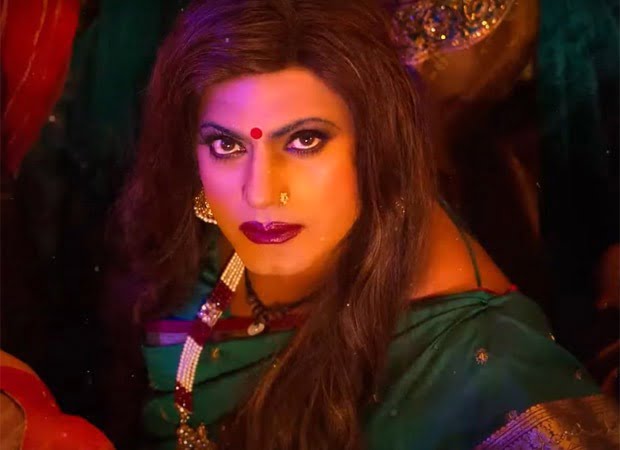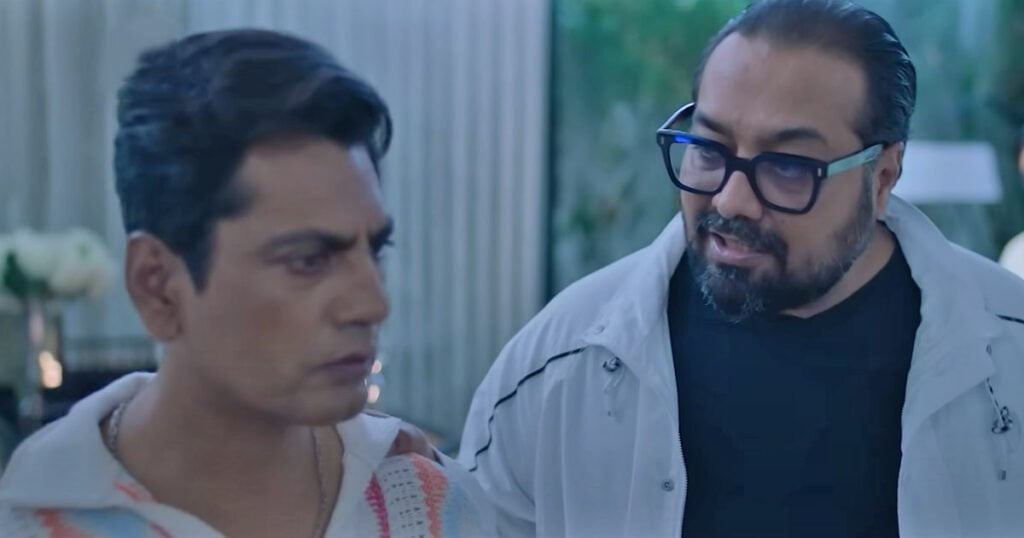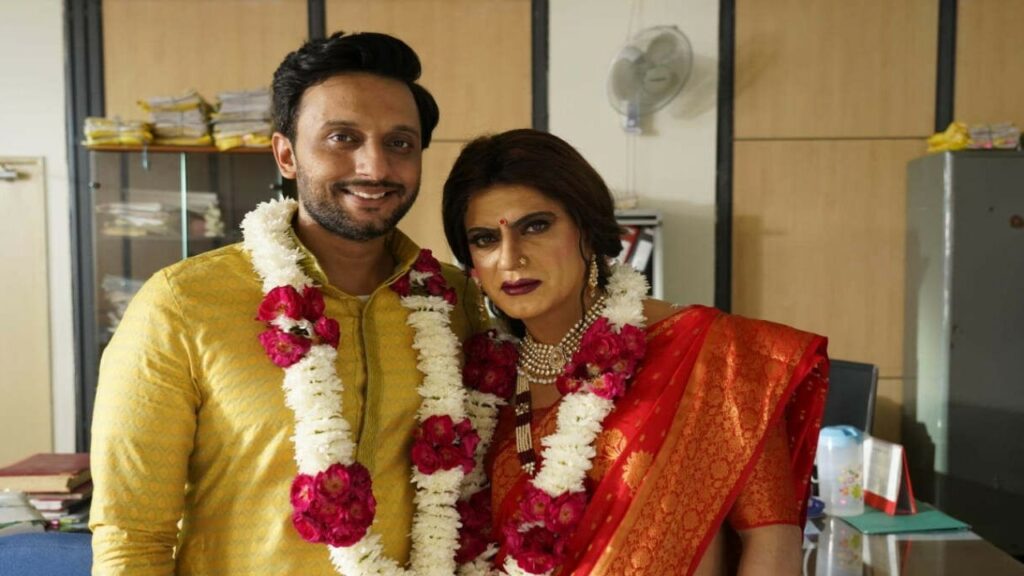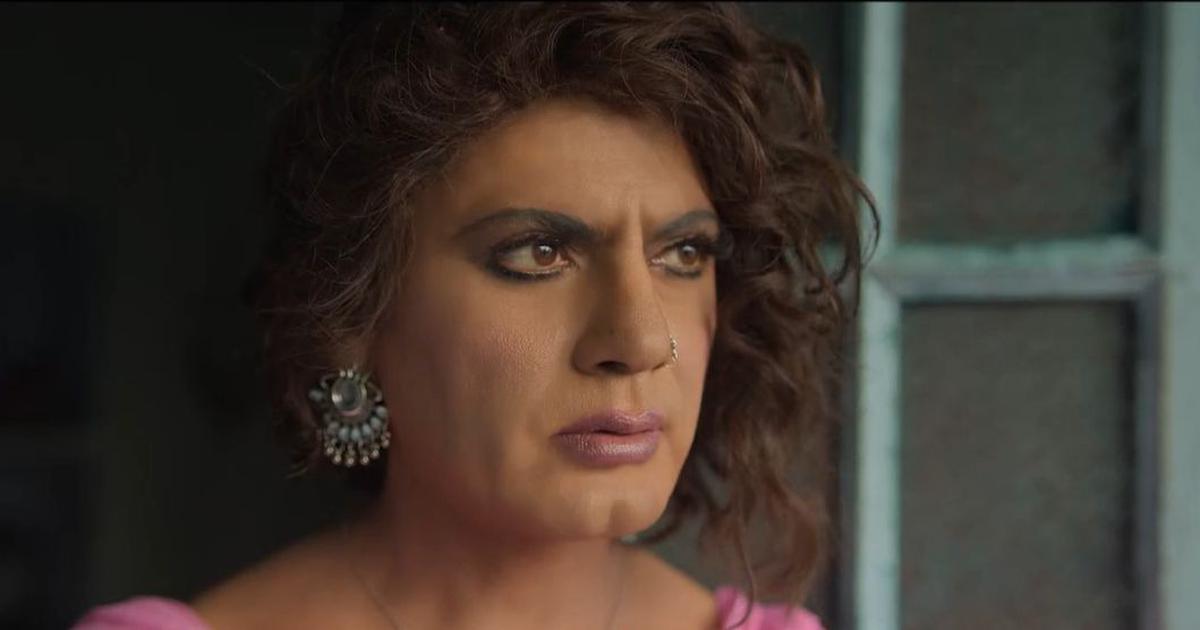Haddi is a crime drama that almost immediately douses itself in murkiness, with instantly detestable characters and a sharp cynicism that plagues the plot. The worlds of the caricatured villains and the nuanced world of the Hijra community do not mix well in the story, the undercurrents of Nawazuddin’s acting are glossed over by contemptuous dialogue and caricaturized villains that don’t do justice to both the actor and the character of the transgender woman, Harika.
At the bottom of it all, lies the age-old debate of whether cis-gendered men should play the roles of trans women – while Nawazuddin Siddiqui’s acting isn’t exaggerated and parodied, the question still stands, why not cast new voices that fit the bill? Instead of painting a caricature of a transgender woman, that will ultimately reproduce shrouded stereotypes that engulf them.
The casting of men as proxies for transgender women has little to do with how well one does it and more to do with the principle itself – such an enterprise inadvertently will rely on a body of gestural assemblages, stereotypes and notions on how a transgender woman must act, or perhaps, acts. The process of casting a man for such a role, no matter how good, will still reproduce the subconscious encoding of the transgender woman.
The story of a transgender woman extracting revenge from a villain who disparages her world over estate and land falls flat when little to nothing is done to play out the politics of property, marginalised identities and the subversive power of revenge. It reinforces the ancient stereotype of the ‘Kinnar’s curse,’ by posturing Harika in the centre of a crime drama thriller.
The question then ceases to be about representation politics – yes, the trans community deserves to be telling its stories with the precision of a knife, otherwise, it stands at the risk of being subsumed by cultural biases and popular culture narratives that hover over an identity at the periphery.
The story of a transgender woman extracting revenge from a villain who disparages her world over estate and land falls flat when little to nothing is done to play out the politics of property, marginalised identities and the subversive power of revenge. It reinforces the ancient stereotype of the ‘Kinnar’s curse,’ by posturing Harika in the centre of a crime drama thriller.

The genre of the crime drama manages to overpower the politics of the story and distils it into another mass film, however, there are glimpses of Harika’s interiority and her grappling with both rage and vulnerability.
The construction of identity through the film delves into the shadowing space of mockery when you read reviews that purport the view that Nawazuddin Sidiqqui’s acting as a Hijra was on point, such reviews while lauding the actor makes us question, what it means to nail the identity of a Hijra to the point? The film then leaves us with an open-ended question where the principles of identity construction take precedence over the aptitude of the actor on screen.
2023 has been a hopeful year, by and large, for onscreen transgender representation in India. Much of it is down to the performances. Trinetra Haldar Gummaraju, a doctor-turned-actor and a trans woman, made a riveting and warm debut in the second season of Made in Heaven. Then came Sushmita Sen’s Taali which raised some eyebrows and managed to be much less effective. Some headway appears to have been made in the mainstream depiction of trans women, which is why I was a little apprehensive about watching Haddi. The trope of using cis men doused in makeup and exaggerated antics is often the shock value of such films, but the case here was much different.

Such a concern turns out to be the least of the film’s problems when its narrative is bankrupted by North Indian gangster cliches, Pulp Fiction-type displays of violence, convolution and dark-shaded aesthetics that simply don’t do justice to the potential of the character.
After Harika’s body-snatching business is busted, she is taken in by the world of cross-dressers who pose as sex workers to facilitate hits and blackmail. The identity of Harika ties into how she was cared for by her community of enigmatic Hijras, but then again the tragedy of the transgender body keeps striking the crevice of this film to make some sordid point.
There is nothing wrong with conjuring a conniving vengeful charismatic trans woman who is on a mission to scheme and plot a bitter end, to extract revenge over the killing of her godmother, but this is far from the baseline of the film. It becomes difficult for the viewer to divest in Harika’s body of revenge when her emotional interiority reads like a montage of forced tragedy, sweet spots in her life are overshadowed by didactic moments rushed into disaster, and there it is, Siddiqui’s acting while better than the rest, is clouded by what he considers outwardly ‘feminine,’ acts – such as the overt swaying of the hips, the flicking of hair, all of this robs the sincerity and potential the character promises to espouse.

Haddi advertises and markets its allyship poorly amidst some glimpses of sincerity, the grimness and tonality of the film inadvertently infuriate and inflame the interiority of its characters, it then becomes pertinent to reimagine story’s telling where identity doesn’t form the crux of a film.
Anurag Kashyap’s noir filmography makes its way to the aesthetics of the film but strongly clouds and morphs Harika’s narrative, is it then better suited for the crime drama to be a crime drama simply? Does the forced social commentary have to make its way in, isn’t it liberatory in itself to plot transgender characters who simply exist, who do not have an allyship to preach, who exist as is, not for the sake of an external moral parameter but just as any other character of the film?
The trope of transgender women in mass Bollywood films has been overdone by the injected insert of tragedy, Made in Heaven S2 defies it on some level by having their character blend into the environment while maintaining the integrity of the character. Must we ‘other,’ transgender characters in our storylines to make them more believable?

‘Meher,’ in Made in Heaven has her own set of problems exclusive to her identity, yet she doesn’t make up a whole new world in herself, her character forms the body of new contentions all while not existing in an alternate world, while the show has problems of its own, can we reimagine transgender characters to be full-fledged individuals in media who aren’t constantly surveilled by the spectre of tragedy?
For once, a film with dicey representation bears some good faith in its intent, the portrayal of Harika with her husband, forms just another facet of her life, a stride in small graces as the cinematic representation of trans women and romance isn’t muddled by alienation and violence.
Haddi is an attempt, there are enough bones to pick with this flick, despite the subversion of its expectations. For once, a film with dicey representation bears some good faith in its intent, the portrayal of Harika with her husband, forms just another facet of her life, a stride in small graces as the cinematic representation of trans women and romance isn’t muddled by alienation and violence.
And yet, the romance and soap opera-like flashbacks only serve to exist the function of tragedy porn – Haddi while well-meaning, doesn’t live up to the bare bones of what makes a film remarkable.
About the author(s)
Rida Fathima is a twenty-year-old Literature student at Azim Premji University with an interest in literary theory, film criticism, Marxist historiography and oral archives. She is interested in critiquing and analysing media through a feminist anti-capitalist lens.




